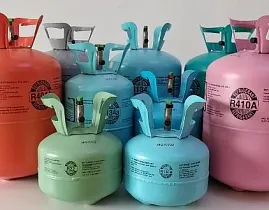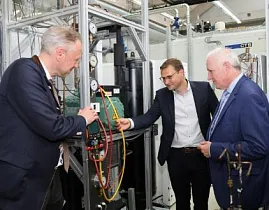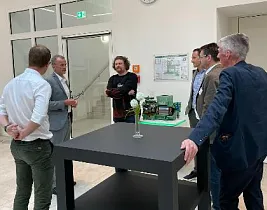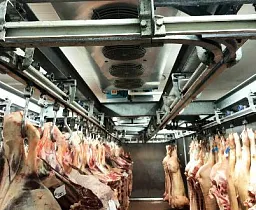
The objective of this guidance document is to clarify for members the consequences of leaving the EU with regard to the fluorinated greenhouse gases and ozone depleting substances regulations in the United Kingdom after we leave the European Union on 31st December 2020.
This guidance will be reviewed and updated over the course of the coming months as positions and situations may change due to negotiations between UK Government and the EU and any subsequent legislation that may ultimately affect this guidance such as the Internal Markets Bill. The guidance will be based on knowledge at the time of publication and the latest version of any guidance should always be sought.
EN standards have already been transposed as “BS EN” standards and will, for the time being remain valid.
1. BASIC FRAMEWORK The UK Government has been clear from the outset of negotiations of exiting the European Union (EU) that it is not their intention to reduce the impact or efficacy of the existing environmental regulations after the UK leaves the political union, including those relating to reducing and minimising emissions of ozone depleting and fluorinated greenhouse gases. A Common Framework Agreement across the four Nations in the United Kingdom sets out the areas of competence for the devolved administrations and their respective enforcing authorities. Some of the arrangements in the Framework Agreement will not apply to Northern Ireland (NI) in the same way for the time being in the same way as they do the Great Britain (GB). This is due to the separate legislation and systems under which NI will and GB will operate in accordance with the Protocol of Ireland / Northern Ireland in the EU (Withdrawal) Act. The new GB regulations come into effect on 1st January 2021 and will effectively transfer the requirements of the current EU regulations directly into GB legislation ensuring a continuity of the day-to-day requirements on contractors, suppliers, and manufacturers. The UK will continue to restrict the use of ozone depleting substances (ODS) and maintain the phase down schedule for fluorinated greenhouse gases (F-Gas), reducing the placing on the market of F-Gas by 79% relative to the baseline set in the current F-Gas Regulations.
The obligations to continue the following will remain:
•To prevent intentional release of F-gases
•To prevent the unintentional release of F-gases during production and use
•To minimise and repair leakages
•To carry out leak checks and keep records, and to use leak detection systems for certain systems
•To recover F-gases from equipment for recycling, reclamation, or destruction where equipment isbeing repaired or decommissioned
•To restrict the placing on the market of certain equipment and products and to prevent sales tobusinesses who do not hold the relevant certification
•Correct product and equipment labelling
2. OBLIGATIONS SPECIFIC TO CONTRACTORS
The same obligations will be in place on contractors after we leave the EU from 1st January 2021 including certification and registration. These relate to any person or company carrying out the following activities:
Installation, servicing, repairing, maintaining, leak checking or decommissioning of in-scope stationary refrigeration, air conditioning and heat pump equipment (SRACHP) and any refrigerant charging or recovery works.
For engineers and technicians, the existing qualifications remain valid and necessary to undertake the work. Existing certification without expiry date(s) will remain valid until such time as they are superseded. Certificates issued from other EU member states will remain valid.
To enable engineers and technicians to work in the EU, including in the Republic of Ireland, from 1st January 2021, the technician will have to hold an F-Gas qualification certificate issued by an EU member state. Engineers can obtain an Irish issued equivalent to their F-Gas qualification free of charge by applying through the Irish EPA website here and clicking on the “RACHPT&T” link there. This service will
only be available until 31st December 2020 and the Irish authorities have urged anyone affected to do this without delay as there may be delays in processing the applications at their end which may prevent you being able to work there.
For companies, the existing registration arrangements with REFCOM remain valid. REFCOM has confirmed our intention to continue to operate the UK’s largest F-Gas Register for both Great Britain and Northern Ireland after the 1st January 2021.
To enable companies to operate in the EU your UK REFCOM (or equivalent) certificate may be invalid after 31st December 2020. We will update this guidance as that date approaches to advise on what steps you will need to take. For now, you do not need to do anything on this point.
Please note:
Where an engineer or technician operates as a sole trader they are classed as being “a company” under the regulations and must hold a company certificate as well as the relevant personal qualifications.
Companies employing sole traders on a sub-contract basis must ensure that the sole trader / sub-contractor is properly registered with REFCOM as well. Sole trader/sub-contractors cannot operate on somebody else’s license.
Further information is available on the Government website for contractors here.
3. OBLIGATIONS SPECIFIC TO QUOTA HOLDERS, SELLERS & IMPORTERS
If your company currently holds a quota authorization from the EU you can apply to exchange your unused EU authorisations for UK authorisations by first registering with the Environment Agency (EA) to get an organization ID. You will have to inform the EU how much of the quota you have exchanged to the UK.
If you wish to continue placing bulk HFCs or goods or equipment containing HFCs on the EU market then you will need to continue to follow the EU rules.
For placing these goods or equipment on the UK market you will have to hold a UK quota (for bulk gas) or a UK quota authorisation (for equipment containing HFCs) under the UK’s new quota system. Current UK based quota holders have already been contacted by Defra advising of this. The devolved administrations have agreed to remain part of a UK-wide single market with the EA administering the
systems. The EA may impose a charge to cover the costs of administering this system but will hold a public consultation before deciding on this.
For any business looking to become an importer or producer and therefore needing to become a quota holder as a new entrant they should refer to the UK Government guidance for more information.
As with the current EU legislation, no refrigerant gases should be supplied to any natural person for the purposes of carrying out the installation, servicing, maintenance or repair of in-scope systems who does not hold the correct certification from REFCOM or an equivalent body and pre-charged split systems shall only be sold to an end user where evidence is provided, in advance of the supply of goods, that the installation is to be carried out by a correctly certified company. REFCOM guidance on the supply of pre-charged split systems should be referred to for more information on this.
Note: this document is based on knowledge available at the time of publication and is meant for general purposes, not for reliance on in relation to specific technical or legal issues, in which case you should always seek independent advice. No responsibility of any kind for any injury, death, loss, damage or delay however caused, resulting from the use of the advice and recommendations contained herein, is accepted by the authors or others involved in its publication (including the Building & Engineering Services Association).





